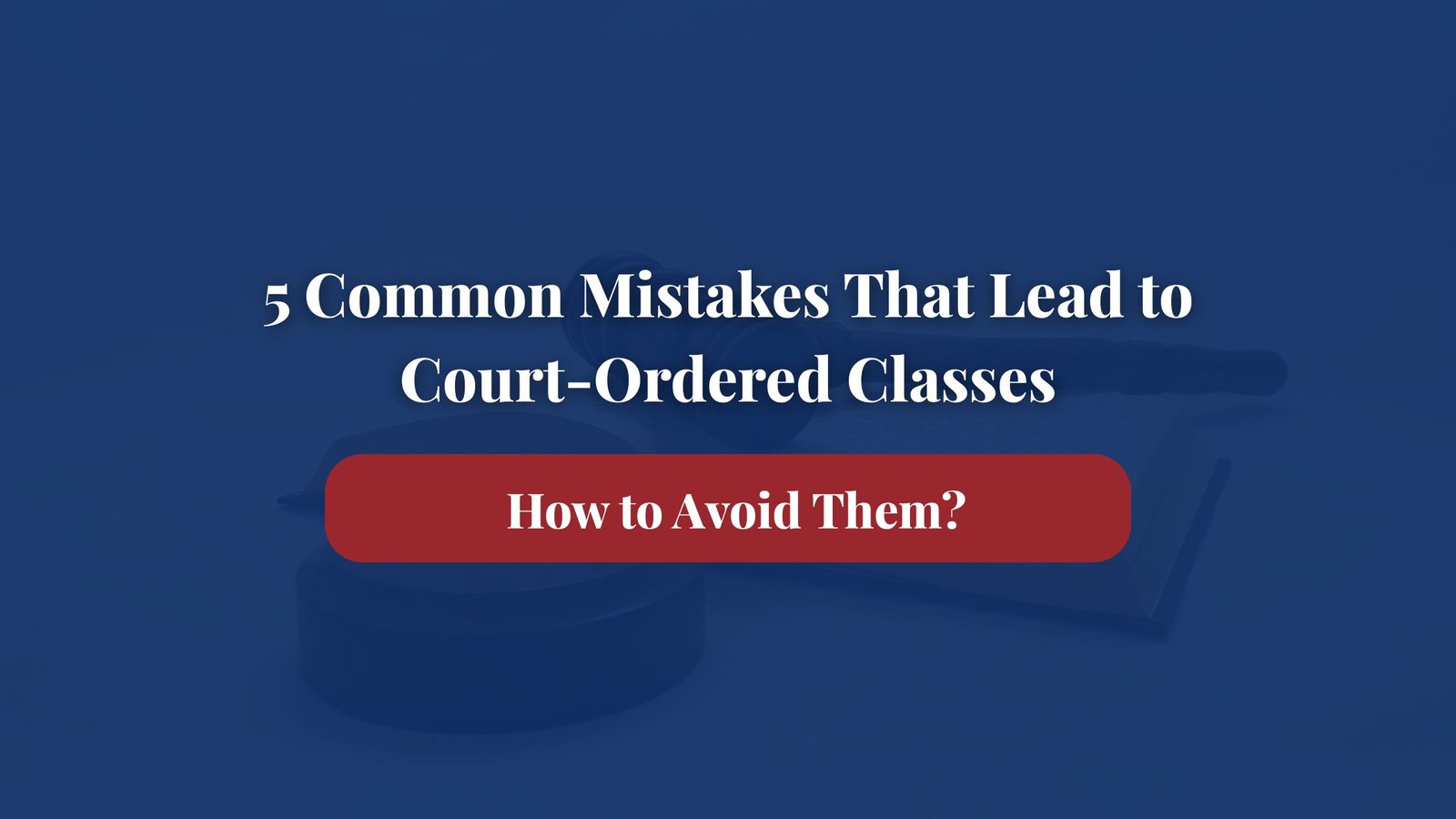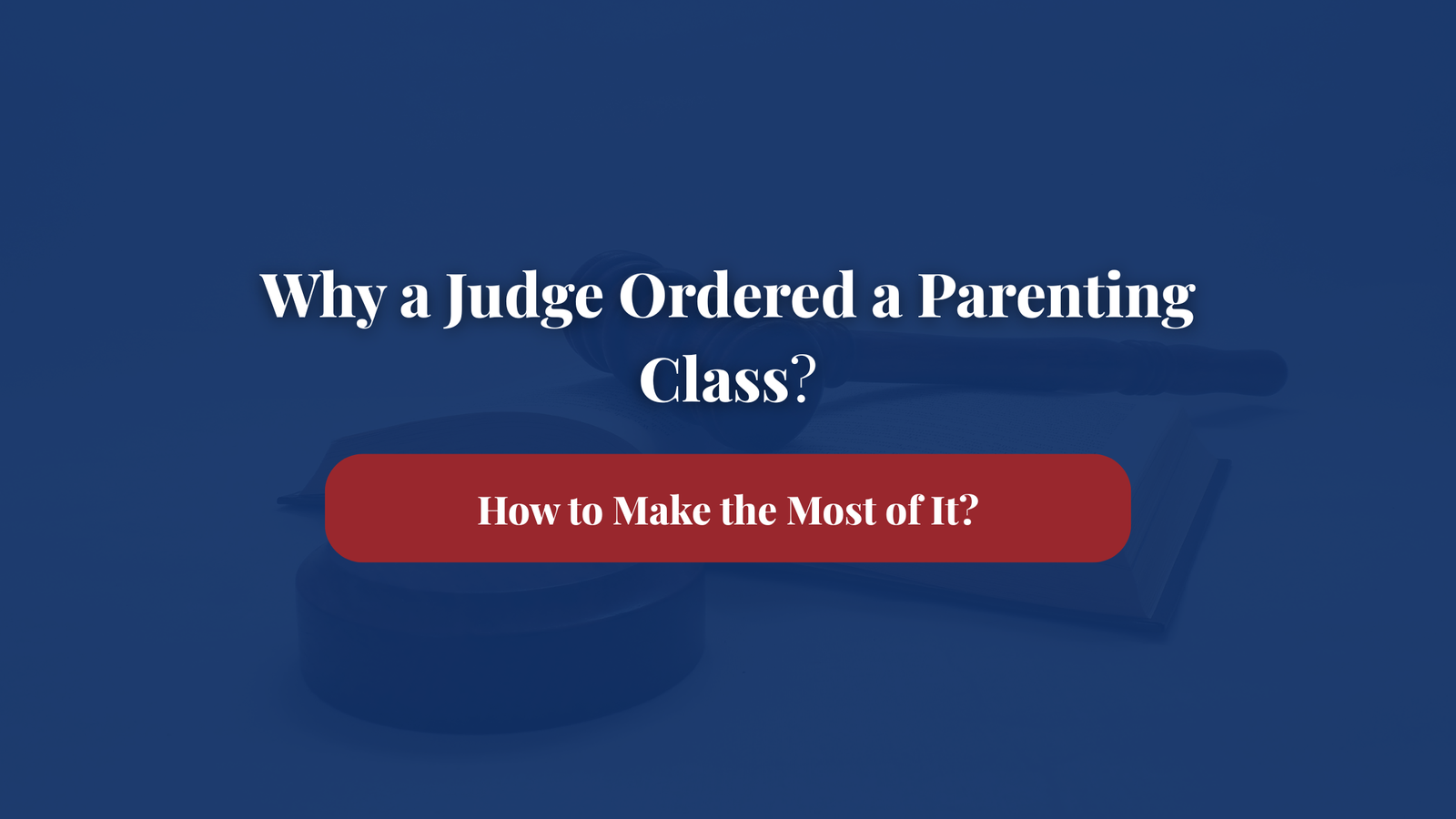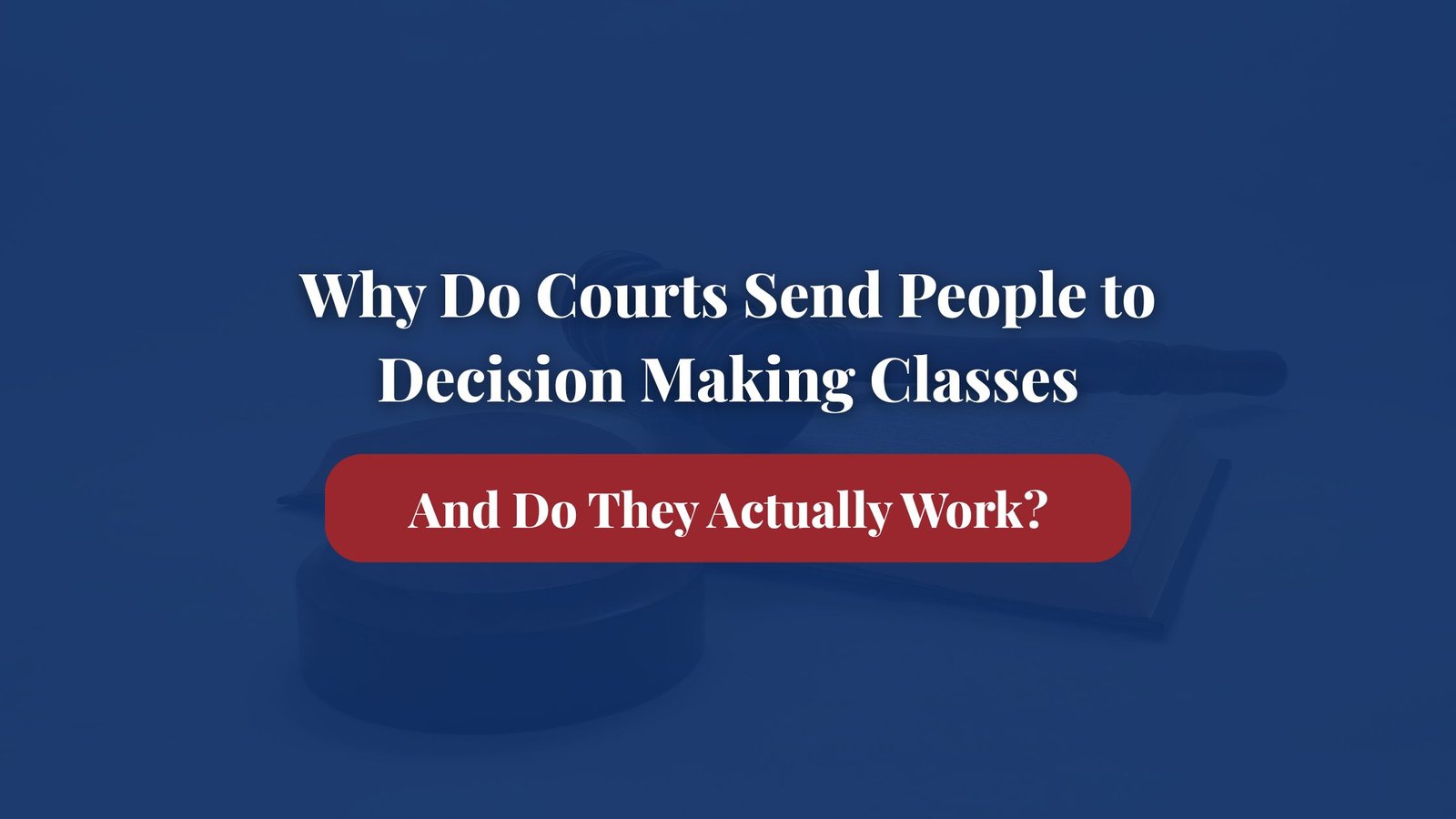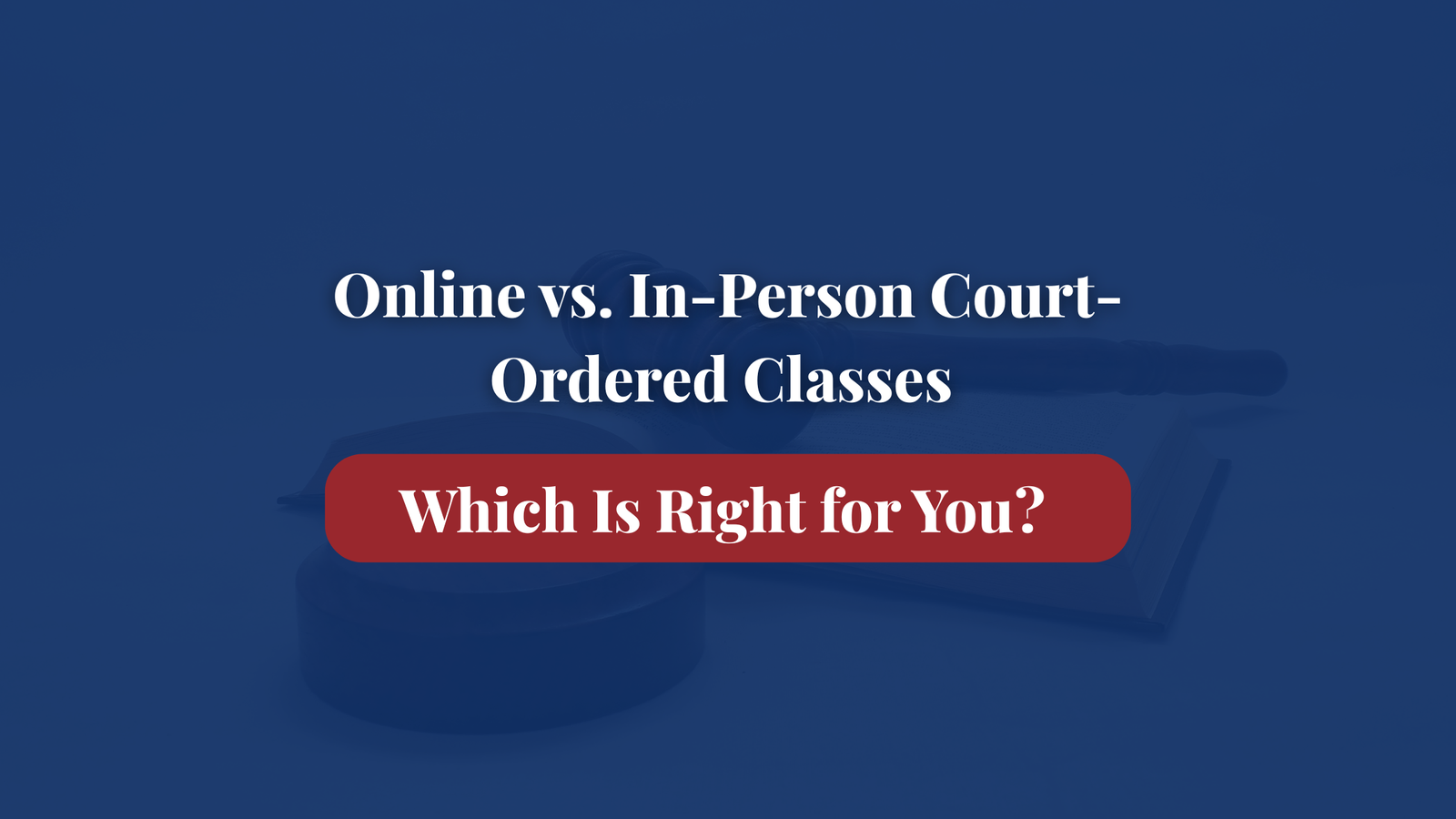Most people never expect to find themselves in a courtroom being told they have to take a class. Yet every year, thousands of people are ordered to complete programs like Decision Making, Anger Management, Parenting, or DUI classes. In many cases, these aren’t hardened criminals but ordinary people who made one bad choice that spiraled into legal trouble.
The truth is, a lot of court-ordered classes stem from simple, preventable mistakes. Understanding what they are—and how to avoid them—can save you stress, money, and the embarrassment of explaining to friends or family why you have to attend a mandatory course.
Let’s look at the five most common mistakes that lead people to court-ordered classes and what you can do differently.
1. Acting on Impulse
It only takes one quick, careless decision to create a chain reaction of problems. Maybe it’s grabbing something from a store without paying because “it’s just a small thing,” or speeding because you’re late for work. Those small, impulsive choices often carry big consequences.
One of the top reasons judges assign Decision Making Courses is to help people slow down and think before they act. Impulse control isn’t just about crime—it affects relationships, work, and finances too.
How to Avoid It:
-
Pause before making decisions that could have long-term effects.
-
Ask yourself: “If I do this, what’s the worst-case scenario?”
-
If emotions are running high, wait a few minutes before acting.
2. Letting Anger Control the Moment
Most of us have been angry enough to say or do something we regret. But when that anger escalates—like yelling at someone in public, pushing during an argument, or damaging property—it often leads straight to Anger Management Classes ordered by the court.
Anger is normal. What matters is how you handle it. The people who complete these classes often say they wish they had just walked away or cooled off before reacting.
How to Avoid It:
-
Recognize your triggers (certain situations or people).
-
Practice techniques like deep breathing or counting to ten.
-
If you feel things heating up, physically remove yourself from the situation.
3. Ignoring Substance Rules
Alcohol and drugs are behind a huge number of court-ordered courses, especially DUI or Substance Abuse Programs. Driving under the influence, possessing illegal substances, or even public intoxication are all common reasons someone finds themselves with a court-mandated class.
These aren’t always “bad people”—sometimes it’s just one night of poor judgment. But the consequences can be serious: license suspension, heavy fines, even jail time.
How to Avoid It:
-
If you drink, arrange a ride beforehand. Don’t rely on “feeling fine.”
-
Understand the laws around substances in your state.
-
Remember that being “just a little buzzed” still counts as impaired driving.
4. Skipping Responsibilities
Some people end up with court-ordered courses not because of a dramatic mistake, but because they ignored something important. Unpaid child support, missed court dates, ignored traffic tickets, or probation violations are all examples. Judges often respond by ordering classes like Parenting Courses, Traffic School, or Decision Making Programs to remind people of their responsibilities.
Ignoring legal obligations doesn’t make them disappear—it just adds more trouble later.
How to Avoid It:
-
Handle tickets, fines, and legal paperwork immediately instead of procrastinating.
-
If you can’t pay or meet a deadline, communicate with the court or agency involved.
-
Stay organized—set reminders for court dates and payments.
5. Not Thinking Beyond the Moment
Many offenders say the same thing when they’re in court: “I didn’t think it was a big deal.” Whether it’s cheating on a test, vandalizing property, or getting into a bar fight, these are short-term decisions with long-term effects.
Judges often assign Decision Making Classes because they teach people how to see beyond the next five minutes and think about how their choices affect their future.
How to Avoid It:
-
Before acting, ask: “How will this affect me a week, a year, or five years from now?”
-
Consider the impact on your reputation, finances, and relationships.
-
Practice planning ahead instead of reacting to situations on the spot.
The Bigger Picture: Court-Ordered Classes Aren’t Just Punishment
It’s easy to feel embarrassed or frustrated when you’re told to take a class. But here’s the thing: these classes are designed to help, not just punish. Judges use them as tools to prevent people from making the same mistake twice.
Many participants actually find these courses helpful. They learn practical skills like communication, emotional control, and better planning. For some, it’s a wake-up call that changes how they handle everyday decisions.
What If You’re Already Ordered to Take a Class?
If you’ve been ordered to attend a class, take it seriously—it’s your chance to fulfill court requirements and move on quickly. The good news? You don’t necessarily have to sit in a classroom anymore. Online court-ordered courses let you complete your program at home, on your own schedule, and often in just a few hours. You’ll still learn the same material, but without the hassle of commuting or missing work.
Final Thought
Most court-ordered classes start with a mistake that could have been avoided. But if you learn from it—whether you’re preventing future trouble or completing a required program—you can turn it into something positive.



